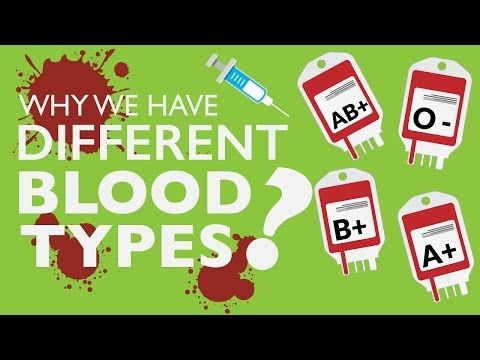In The Blood: Antigens In Red Blood Cells Determine Human Blood Types

All blood tends to look pretty much the same, containing the basic components including red cells, white cells, platelets, and plasma, but yet not everyone is the same blood type. Human blood types are vital for determining where we can get a blood transfusion during an emergency or for cancer treatment, but what differentiates them? Life Noggin’s video “Why Do We Have Different Blood Types?” unveils the science behind blood type letters and plus signs.
In the U.S., about five million Americans need blood transfusions every year for a variety of reasons. Blood types allow us to save lives by transfusing blood into patients and also fend off infectious diseases. When foreign objects like bacteria or viruses — also known as antigens — get into the body, the white blood cells produce antibodies to attack it. This antibody then attaches itself to the edge in our immune system to keep us from getting sick.
Unlike the foreign antigens that enter our body, antigens in our red blood cells don’t aggravate our immune system. These millions of antigens are what determine our blood type, according to Life Noggin. For example, if you have both A and B antigens, then your blood type is AB. Additionally, if you have neither A nor B antigens, then you have type O.
Blood types are crucial for blood transfusions to protect the immune system. If you have type A blood, this means you have anti-B antibodies, and cannot receive someone else’s blood that’s type B. This will cause the immune system to attack, thinking it’s a foreign object.
Remember, the ABO Blood Group System below shows the four major blood groups determined by the presence or absence of two antigens — A and B — on the surface of red blood cells:
Group A – has only the A antigen on red cells (and B antibody in the plasma)
Group B – has only the B antigen on red cells (and A antibody in the plasma)
Group AB – has both A and B antigens on red cells (but neither A nor B antibody in the plasma)
Group O – has neither A nor B antigens on red cells (but both A and B antibody are in the plasma)



























